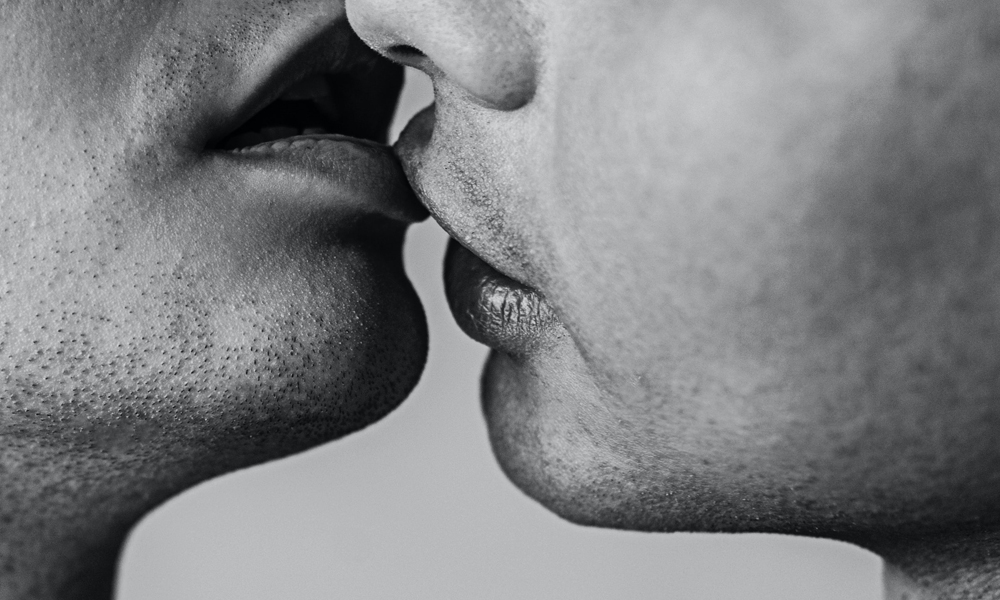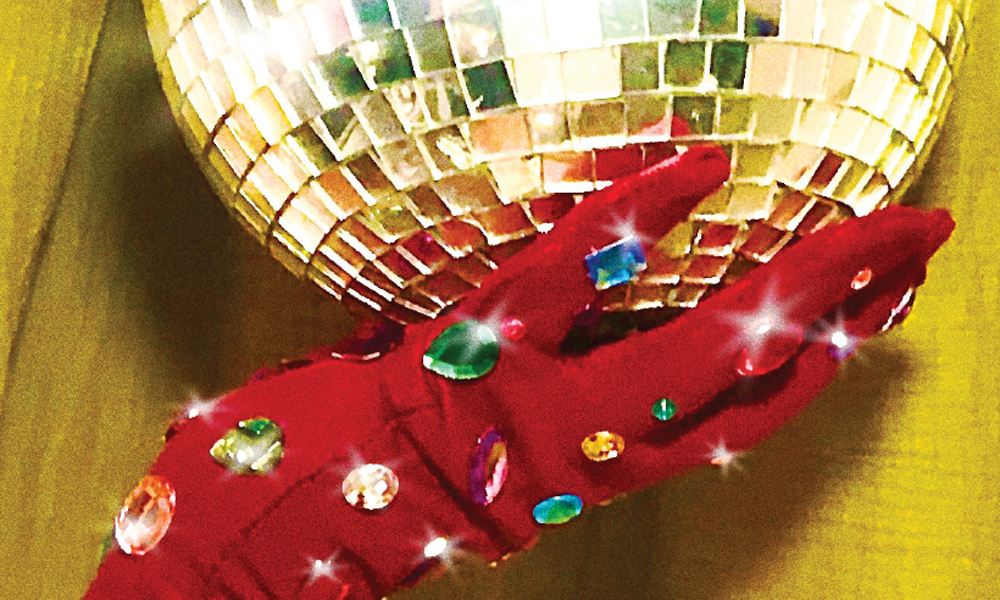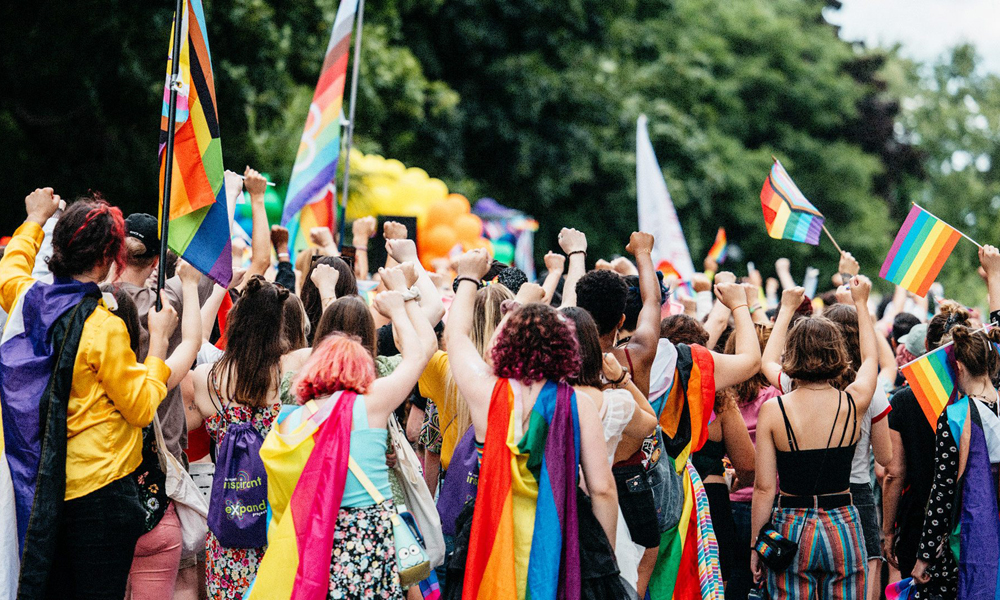Is…is the “No Kink at Pride” discourse over? Is it safe to come out yet?
By Jesse Boland
Before I start, let me first state that I am proudly a slut. Indeed, I’m a hoe, I’m a freak (the clinic is sending me results at the end of the week). But above all else, I am a hater. I create my own rainbows by raining on other people’s parades and at times feel the need to dismantle blind sentiments of positivity, and in today’s case, sex-positivity – or rather, what has blindly become perceived as sex-positivity. In a culture that insists on convincing us that we are all “free” even while the trajectory of our lives is determined by credit scores, it can’t help but be pondered how much of our relationships with sex are by the agency of our natural libidos and how much by the hundreds of unnecessarily sexualized advertisements that non-consensually penetrate our minds daily?
Sex-positivity, coined by the late Austrian psychoanalyst Wilhelm Reich during his studies in 1927, has morphed from being a Marxist ideology of bodily autonomy into a get-out-of-jail-free-card excuse for being furiously horny at all times and places. This is one of the most recent victims of the plague of sociological terminologies being divorced from their conceptual definitions through the tumblrfication of language. While this may seem like a common vexation of everyday jargon, the watering down of language from radical movements has been proven to effectively hinder said movements by distorting the public eye’s perception of them; it can be argued that the term “feminism” has never fully recovered from being exploited by the neoliberal girlbossification of 2014.
Yes, we are all hornier now than ever before, and who can blame us after having our sense of touch be deprived as the result of not one but two global pandemics? After all, during lockdown, who among us didn’t get day drunk and DM a hot actor from the CW Network asking them if you could drink their bathwater like it’s the leftover milk from a bowl of Cinnamon Toast Crunch? (KJ Apa: if you are reading this, I genuinely apologize.) But that doesn’t excuse us from forgetting to acknowledge the necessity of consent when we navigate our horniness openly.
The role of social media has created space for people to openly (sometimes too openly) express our yearning libidinousness on platforms to an audience of hundreds of friends, colleagues, peers, co-workers and people you went to high school with but don’t talk to anymore yet don’t wanna unfollow because their semi-monthly emotional breakdowns are actually really amusing. With that comes a dire need for properly navigating just where it may be appropriate (or not) to announce what a mind-blowing experience the threesome of you had on Remembrance Day. For future reference: being horny on Twitter is not only acceptable but encouraged; being horny on Instagram is kinda cringe and uncomfortable unless your followers know what they’re signing up for in advance; being horny on Facebook is just absolutely psychotic and unhinged; but being horny on LinkedIn? Now that is a power move, baby!!!
But aside from that, sex-positivity is about so much more than horniness or embracing kink; it also serves to create safety around a topic that has been used throughout history to demonize women and queer people. Sex-positivity is also about destigmatizing STIs, openly discussing our trauma in sex through supportive dialogue, and even helping to coach us with communicating boundaries in what we simply do and do not feel comfortable with sexually. While it can be constructive to help people (if they ask for it, that is!) expand their palate for pleasure when it comes to acts they may have not experimented with before, it is equally valid to accept when they tell you they do not feel comfortable getting their ass eaten and to drop the conversation right then and there.
It is here where we find the dangerous intersection of sex-positivity and toxic-positivity, where we as complex individuals are expected to share the same eagerness and appreciation for sometimes extreme sexual acts that may be frightening and even physically harmful. Failure to do so may have you rendered a prude, and shamed for having objections towards acts that do not bring you the same pleasure as they do for your partner. When we view positivity as always saying yes, we strip people of their freedom to say no. That’s not sexual liberation, that’s rape culture.
Furthermore, the belief that a person’s sex life is the one aspect of human behaviour that should be immune to criticism is an alarming concept. If someone were to tell you that they like to add piss to their oatmeal in the morning because they like the tangy kick it brings to the flavour, you would likely think that is extreme weirdo behaviour and consider rescheduling brunch at their place this weekend. Yet were that same person to share that they regularly participate in watersports – the sexual act of giving or receiving urine orally – you might be scrutinized for having a similar stance on the act, purely on the basis that critiquing another person’s sex life is intrinsically kink-shaming.
The absolutist belief that all sexual acts are equally valid and healthy is not only reductive but may even, if not checked, allow for the perpetuation of predatory behaviour. Sexuality is possibly the most multifaceted aspect of our human psyche, and conversations – even more critical ones – are fundamental in addressing the validity of our relations to sex. That’s not to say that those with more alternative sexual interests should be reprimanded or made to feel ashamed of their personal pleasures, but simply to be mindful that others are entitled to have their own opinions on the same matter in the same way they do about putting pineapple on pizza.
There is also the sex industry, an admittedly somewhat grim monument to the commodification of the human body that can be liberating and financially freeing for many, yet still caters to an abusive system of exploitation and violence. It is here where we must differentiate between the concepts of destigmatization and normalization. Where destigmatization serves to effectively assert human dignity towards those who have been perniciously marginalized from vilifying traditional understanding of acceptability, the act of normalizing is to blindly accept cultural norms without thinking more deeply as to why they have come to exist. While sex-work is a fully valid form of labour and those who work in it are as entitled to every aspect of respect and dignity as those in any other field of work should be, this work is still dangerous and carries with it many unexpected long-term consequences for those who are not prepared for it. Neoliberalism is no stranger to the world of sex-trafficking, and with the increased popularity of platforms such as OnlyFans, more and more young people are being lured into the world of sex-work under the belief that it is their own choice and not the result of media brainwashing teaching teenagers that their bodies are to be consumed for commercial gain.
Sex is here and it’s not going anywhere, but what we choose to do with it is our decision to make. While women are continuously labelled as loose for their pride in taking agency of their owned pleasure, and queer people are vilified as groomers, sex-positivity has never been more fundamental to our survival. From that, though, it is imperative that we are responsible in what is truly integral in our fight for the radical liberation of bodily autonomy vs. what is simply being horny on main. When we speak openly with our friends and partners about our unique journeys with pleasure, we create space for education and acceptance for what we were once told to feel only shame for. But when we tweet Chace Crawford asking him to blink twice if his bussy grips tight alike to that of a subspecies of Burmese python located in the lower-grasslands area of the Guangxi region of China and he needs you to test it to research the behavioural habits of endangered Southeast Asian reptiles, your account will get suspended for 48 hours (trust me on this one…).
What we learn about consent in our sex lives may be applied to all realms of our social being with understandings for respect, dignity, and the act of offering a towel afterwards. It is with this sentiment that I pray that the concept of constructive sex-negativity may help to create peace between the kink-community and the hater-community, and that we may all find peace together in the sanctuary of the green circle on Instagram.
JESSE BOLAND is that gay kid in class who your English teacher always believed in. He’s a graduate of English at Ryerson University (now Toronto Metropolitan University) who has a passion for giving a voice to people who don’t have data on their phones and who chases his dreams by foot because he never got his driver’s licence.







POST A COMMENT